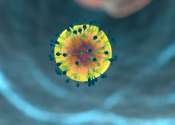Plant compound shows promise for alleviating food allergies
Researchers combined advanced computational methods with experimental studies to gain new insight, at the cell level, into how the plant compound formononetin might be used to treat food allergies. With nearly 10% of the ...
Apr 1, 2022
0
5









